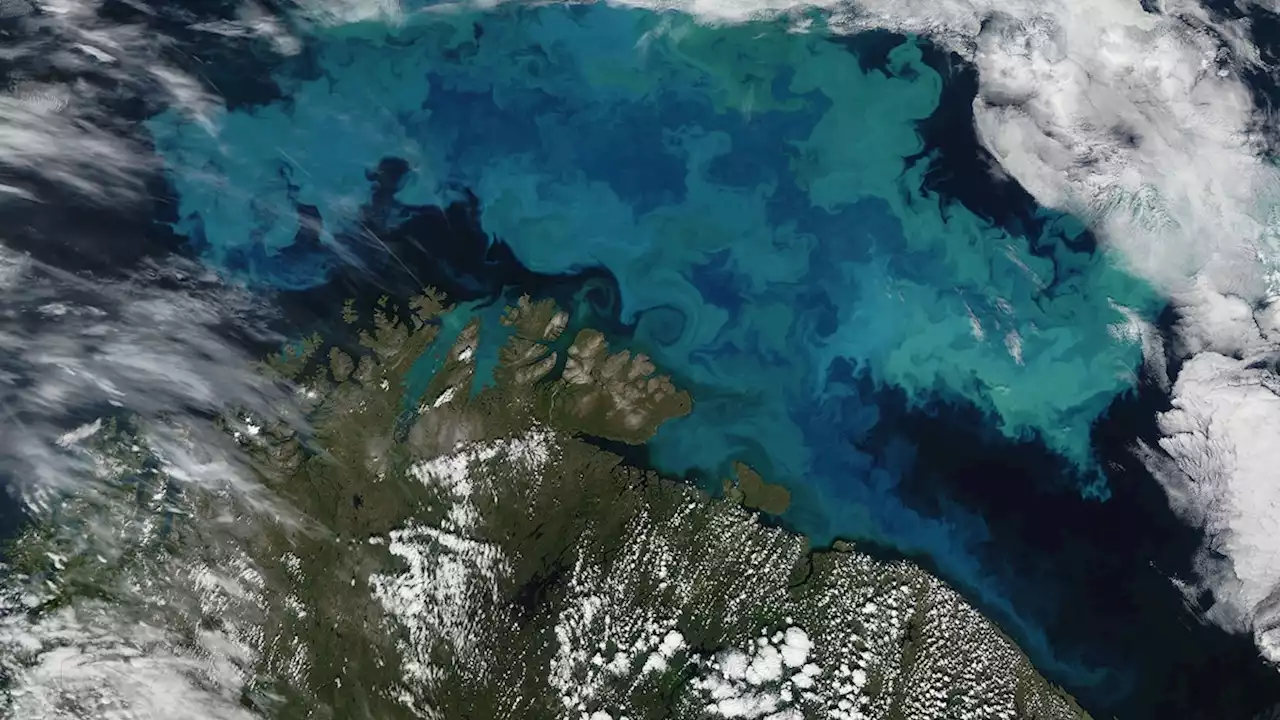'It is very plausible that we've fallen off a cliff already and don't know it,' said one researcher in response to a study showing a key ocean current could collapse this century.
The new study adds to a growing body of evidence that this crucial ocean system is in peril. Since 2004, observations from a network of ocean buoys [have shown] the AMOC getting weaker—though the limited time frame of that data set makes it hard to establish a trend. Scientists have also analyzed multiple"" indicators of the current's strength, including microscopic organisms and tiny sediments from the seafloor, to show the system is in its weakest state in more than 1,000 years.
For thousands of years, the Gulf Stream has carried warm waters from the Gulf of Mexico northward along the eastern North American seaboard and across the Atlantic to Europe. As human-caused global heating melts the Greenland ice sheet, massive quantities of fresh water are released into the North Atlantic, cooling the AMOC—which delivers the bulk of the Gulf Stream's heat—toward a"tipping point" that could stop the current in its tracks.
"It is very plausible that we've fallen off a cliff already and don't know it," Hali Kilbourne, an associate research professor at the University of Maryland Center for Environmental Science,."I fear, honestly, that by the time any of this is settled science, it's way too late to act."
Malaysia Latest News, Malaysia Headlines
Similar News:You can also read news stories similar to this one that we have collected from other news sources.
 Climate change will shift the oceans’ colors, study predictsThe color of deep blue oceans, shallow turquoise waters, and emerald green coasts is quickly changing as the planet warms, according to a new study
Climate change will shift the oceans’ colors, study predictsThe color of deep blue oceans, shallow turquoise waters, and emerald green coasts is quickly changing as the planet warms, according to a new study
Read more »
 Study finds climate change fingerprints on July heat waves in Europe, China and AmericaThe fingerprints of climate change are all over the intense heat waves gripping the globe and they are becoming more common, a new study finds. Researchers say they could not have happened without the continuing buildup of warming gases in the air.
Study finds climate change fingerprints on July heat waves in Europe, China and AmericaThe fingerprints of climate change are all over the intense heat waves gripping the globe and they are becoming more common, a new study finds. Researchers say they could not have happened without the continuing buildup of warming gases in the air.
Read more »
 Study finds climate change fingerprints on July heat waves in Europe, China and AmericaClimate change’s sweaty fingerprints are all over the July heat waves gripping much of the globe.
Study finds climate change fingerprints on July heat waves in Europe, China and AmericaClimate change’s sweaty fingerprints are all over the July heat waves gripping much of the globe.
Read more »
 Heat waves in U.S., Europe ‘virtually impossible’ without climate change, study findsThe analysis by the World Weather Attribution network came with a sobering reminder: Once unfathomable heat waves are not only happening, but becoming more common.
Heat waves in U.S., Europe ‘virtually impossible’ without climate change, study findsThe analysis by the World Weather Attribution network came with a sobering reminder: Once unfathomable heat waves are not only happening, but becoming more common.
Read more »
 Global heatwaves 'virtually impossible' without climate crisis: studyWith tens of million people affected in the northern hemisphere and July on track to be the hottest month globally, experts warn that the worse is yet to come unless we reduce planet-heating emissions.
Global heatwaves 'virtually impossible' without climate crisis: studyWith tens of million people affected in the northern hemisphere and July on track to be the hottest month globally, experts warn that the worse is yet to come unless we reduce planet-heating emissions.
Read more »
 Study finds climate change fingerprints on July heat waves in Europe, China and AmericaResearchers say the deadly hot spells in the American Southwest and Southern Europe could not have happened without the continuing buildup of warming gases in the air.
Study finds climate change fingerprints on July heat waves in Europe, China and AmericaResearchers say the deadly hot spells in the American Southwest and Southern Europe could not have happened without the continuing buildup of warming gases in the air.
Read more »